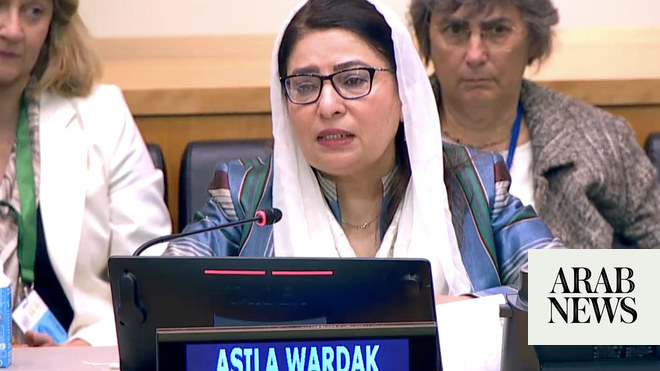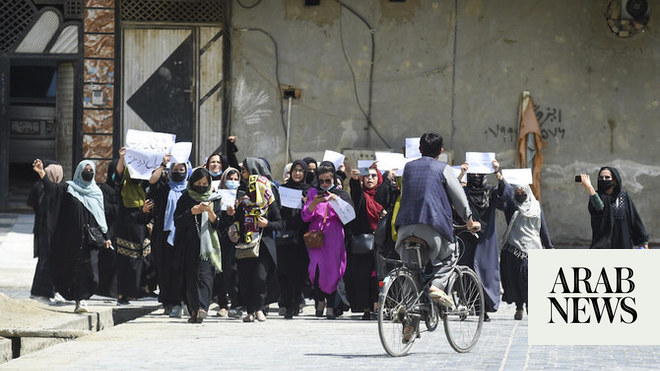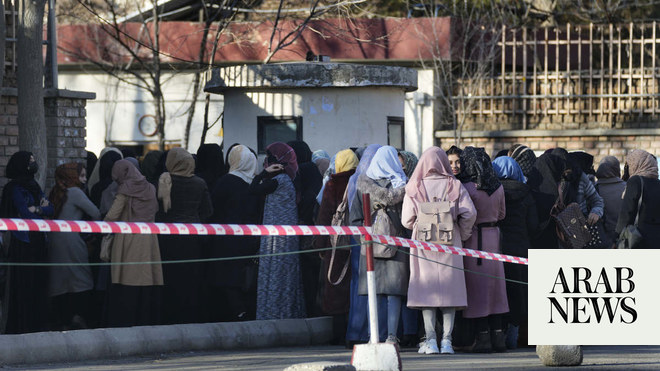
The way the Taliban are representing Islam is ‘very dangerous,’ says Asila Wardak
UAE minister: ‘We must continue to advocate for the rights of women and girls’
LONDON: The Taliban government in Afghanistan has issued more than 94 edicts and decrees restricting the daily lives of women, and this is affecting their mental health, a former Afghan official said at the UN General Assembly on Tuesday.
Speaking at a high-level event on global solidarity with Afghan women and girls, Asila Wardak, former director general of UN affairs in the Afghan Foreign Ministry, said the restrictions banned Afghan women and girls from education, going to the park, moving around freely, accessing health services and traveling.
These limitations are affecting their mental health, and are not inspired by Islam or Afghan culture, she added.
“The way that they (the Taliban) are representing Islam, it’s very dangerous for the region and then for the Islamic community also, because I’m sure there are lots of extremist people in different Islamic countries, and then they’ll copy what the Taliban is doing in Afghanistan,” she said.
“It’s adding to extremism in the world. It’s also a big threat to global security. It’s not only about Afghanistan.”
Habiba Sarabi, former Afghan minister for women’s affairs, echoed Wardak’s views and called upon Muslim-majority countries to show the world that the Taliban’s oppressive policies toward women and girls do not reflect the true values of Islam.
“The Taliban want to push us back hundreds of years in the name of Islam. Please show the world that what they’re doing doesn’t reflect the true values of Islam,” said Sarabi.
“It’s upon us to continue to exert public and private pressure from all possible sides to prevent the normalization of the Taliban gender apartheid, and to give Afghan women a seat at all levels, tables and international diplomatic fora where Afghanistan is being discussed.”
UAE Minister of State Ahmed bin Ali Al-Sayegh also highlighted that Taliban-imposed restrictions on women “have no basis in Islam or in culture,” adding: “I hope we continue to voice our condemnations, but also to take concrete steps on the ground to help the Afghan population.”
He said the UAE had offered Afghan girls educational scholarships, but they were stopped from taking advantage of those opportunities by the Taliban.
“We must also continue to advocate politically, and through diplomacy, for the rights of women and girls,” he added.












